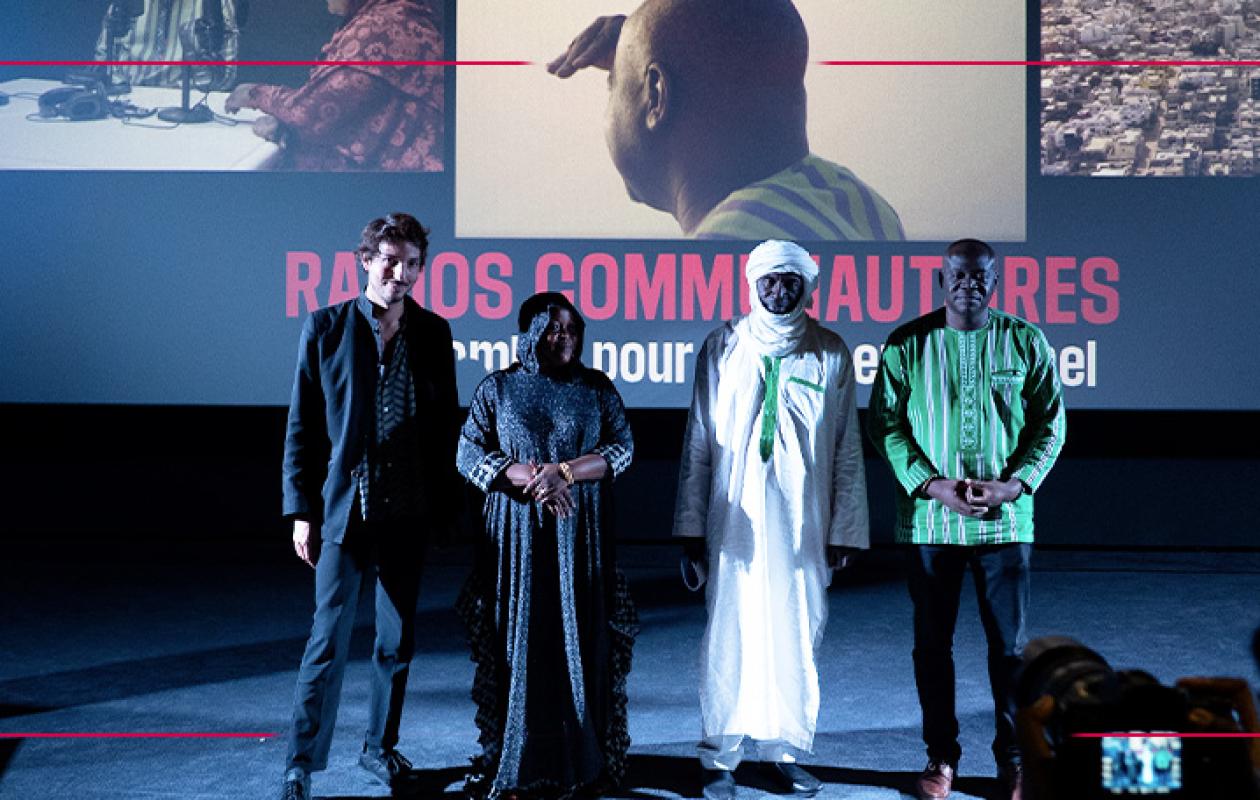
Avant-première du documentaire de Reporters sans frontières : Le combat des radios communautaires en zone rouge
The Reporters Without Borders (RSF) office in Dakar held a preview screening of the documentary film "Sahel Community Radio: The Last Resistance of Information" on Thursday, September 11, at the Pathé cinema in Dakar, as part of its Sahel campaign. The 27-minute production highlights community radio stations.
Through this poignant film, RSF pays tribute to journalists who, in the most unstable regions of the Sahel, continue to carry the voice of their communities, despite the extreme risks they face.
The documentary follows the daily lives of three journalists from Burkina Faso, Niger, and Mali, countries deeply affected by violence from armed groups, terrorist attacks, and the collapse of civic space.
In these areas, being a journalist has become an act of bravery. Every year, journalists are threatened, kidnapped, or killed simply for doing their job.
Yet these journalists refuse to remain silent.
Ousmane Abdoulaye Touré, director of Naata radio in Gao (Mali), Fati Amadou Ali, director of La Voix de la Tapoa radio in Say (Niger), Adama Sougouri, director of La Voix du Paysan radio in Ouahigouya (Burkina Faso) went to Dakar to share their experience of the work they do in one of the most dangerous areas in the world: the Sahel.
"Our communities are thirsty for peace, even if the situation seems to be changing, but there is still a lot of need," Ousmane Touré stressed.
Following the screening, the three journalists were on hand to engage with the Dakar audience. The exchange highlighted the challenges they face every day, but above all, the determination that drives them through projects they want to promote in their regions.
"Radio is the hope of our people. Armed groups have reduced television stations to ashes, but community radio broadcasts information," adds Fati from Niger. "As a woman, there are places I am not allowed to access, but I go there in search of information," she continued.
These moments of exchange served as a reminder that behind the information disseminated, there are real risks, but also a deep conviction that information is a vital right, especially in times of crisis.
With this documentary, Reporters Without Borders seeks to alert public opinion to the rapid deterioration of press freedom in the Sahel region. It also aims to support these shadowy journalists, who work in precarious conditions, without protection, but with an intact sense of duty.
"We launched a campaign to save journalism and the right to information in sub-Saharan Africa. Since 2022, additional training for journalists in the Sahel related to fact-checking has been provided to ensure that the Sahel does not become an information black hole," said Sabibou Marong, director of the Reporters Without Borders office in Dakar.
Commentaires (1)
Comprenez que nous ne retournerons jamais dans votre colonisation !!! Donc pas la peine de vous fatiguer avec votre propagande...
Participer à la Discussion
Règles de la communauté :
💡 Astuce : Utilisez des emojis depuis votre téléphone ou le module emoji ci-dessous. Cliquez sur GIF pour ajouter un GIF animé. Collez un lien X/Twitter, TikTok ou Instagram pour l'afficher automatiquement.